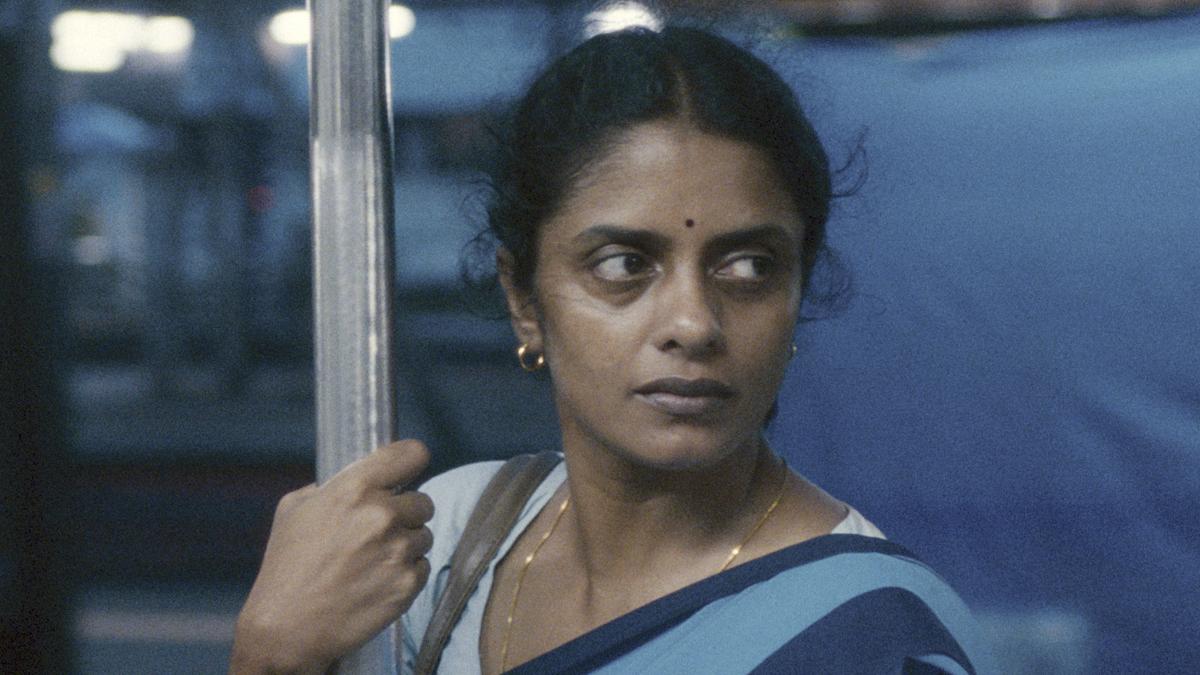
Screen share | Films on living, and thriving, despite loneliness
The Hindu
Exploring loneliness, love, and resilience through award-winning films and powerful portrayals by talented actors.
“Do you mind if I ask you a question,” I said to amma. Two weeks ago during our daily catch-up call at the onset of the holiday season, I decided to deviate from our routine of updating each other about the vagaries of our lives, who we met, and what we cooked.
I had just finished watching director Payal Kapadia’s award-winning All We Imagine As Light (AWIAL) and was particularly perturbed by its central character Prabha’s (essayed by Kani Kusruti) despondence in the first half. “How did you deal with loneliness after appa? It is suddenly feeling a little too heavy during this time,” I said, changing the pace of our conversation from the familiar.
A pall of silence fell over the call. Amma took a beat. “It was and is incredibly hard. I don’t recommend it. Not for you and certainly not for me,” she said, speaking of it as though leaving a Google review.
My mother’s brevity is reminiscent of Kusruti’s portrayal of a rigid, imposed stoicism in AWIAL around the topic of loneliness. While one may not speak of it in as many words, this shroud of isolation is an unfortunate universal human experience.
There is a moment in AWIAL where Prabha slumps to the floor. It is night. The rain in Mumbai is rattling windows and flooding living rooms. Prabha, a nurse by day, now in her nightgown, is swaddled in a silent, lonely blue as she examines a rice cooker. Was it her estranged husband who sent her this gift, or a co-worker who has recently shown interest? In her silent contemplation, one sees her lurch forward and hug it. This inanimate object now holds power. It is one that defines Prabha’s desire for touch and an absence of romance.
Enough may have been written about this particular cooker scene that adorns the poster that is travelling the world and raking in awards and honours, including two historic nominations at the Golden Globes. What about loneliness makes it as hard to talk about? When verbalised, the act feels like desperation. However, when shown on screen through characters like Divya (Revathi) in Mouna Ragam and Mrs Chan (Maggie Cheung) in In the Mood for Love, through silent acts of abandon and obsession, it shines, telling the story of what it is like, particularly for women in this country, to speak of desire and ask for love.
Kusruti is a masterclass in the portrayal of this deep, layered emotion. In a moving coming-of-age feature titled Girls Will Be Girlsby director Shuchi Talati, Kusruti essays the role of Anila, a mother who struggles not just with a difficult relationship with her teenage daughter Mira (Preeti Panigrahi) at the cusp of discovering her sense of self, romance, and sexuality; but also with an absent husband who often disrespects her and shoots her down. How she occasionally takes to receiving attention, in an almost high-school-like competition with her daughter, captures the essence of her lack of meaning and agency. Do we not see her eyes look downward in shame and sadness when her husband and daughter make fun of her?

A vacuum cleaner haunted by a ghost is the kind of one-liner which can draw in a festival audience looking for a little light-hearted fun to fill the time slots available between the “heavier” films which require much closer attention. A useful ghost, the debut feature of Thai filmmaker Ratchapoom Boonbunchachoke being screened in the world cinema category at the 30th International Film Festival of Kerala (IFFK), even appears so in the initial hour. Until, the film becomes something more, with strong undercurrents of Thailand’s contemporary political history.

Sustainability is not an add-on, but stamped firmly into the process: every piece is biodegradable, waste-free and unembellished, free from glitter or beads. “Products should be sustainable and biodegradable so that our planet is not harmed,” says Anu Elizabeth Alexander, a student of Sishya, Adyar. At a recent exhibition, the stars she made sold the fastest, followed by the small diamonds. “I would like people to know about the process, how it is created, and that it is sustainable,” says Anu. Infanta Leon from Kotturpuram developed an interest in crochet as a teenager. It was a hobbyhorse that evolved into a steed that would help her embark on a journey of identity-shaping creative engagement. She started making Christmas-themed decor two years ago, spurred by a desire to craft safe, eco-friendly toys for children. “With a toddler at home, and my elder child sensitive to synthetic materials, I wanted to create items that were gentle, durable and tactile,” she explains. Her earliest creations were small amigurumi toys which gradually evolved into ornaments that could adorn Christmas trees with warmth and charm.











